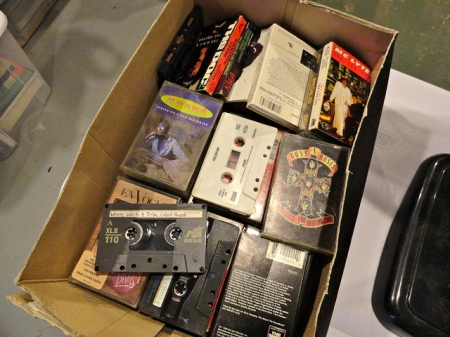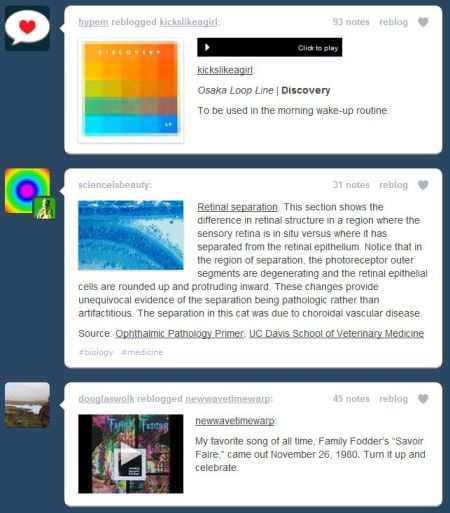I’ve been watching the debate over Amazon’s e-book rental service, announced a few weeks ago. I can’t help but notice how it recapitulates the debate over streaming music.
Here’s a pretty normal day for me and music: I’ll listen to the radio in my car en route to work. I take my iPod, loaded with MP3s, to the gym. At my desk, I stream music via Spotify, or Last.fm, or by using ex.fm for MP3 links, or Hype Machine, or more. Or I stream more radio. On the way home, I listen to CDs (my car is too old to have an auxiliary input). I might stream Spotify to my phone as I walk out to meet friends for dinner. And I’ll put a vinyl record on when I come home.
Similarly, my office is full of text. Textbooks. Large-format coffee-table style books. My Kindle. Hand-bound copies of all of my theses. PDF e-books on my computer. Printouts of manuscripts to review. Bookmarks to online texts in my browser. Novels: hardbound, trade and pocket paperback. On my phone, Kindle and Instapaper. Workbooks.
I recently downloaded a number of illustrations from Ernst Haeckel’s 1904 book, Kunstformen der Natur, from the Wikimedia Commons. They first existed as sketches, then engravings, then the lithographs that went into the book. Someone scanned the pages and uploaded them as high-resolution images, which I downloaded, opened in image-editing software, converted to greyscale and resized, and then downloaded to serve as the screensavers on my Kindle.
It’s a fallacy to think that the existence of one technology supplants another. Sure, technologies become obsolete. But as a user and a lover of the content (the text, or the music, or the images), I’m not interested in hurrying up the process. Different technologies have different affordances, and my primary interest is in being able to reach for the most appropriate one for my purpose.
[photo: lost box of tapes! by Flickr user wayneandwax, used here under its Creative Commons license]











